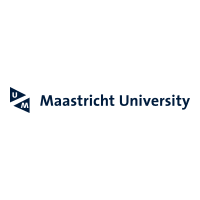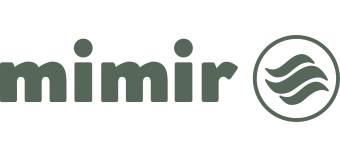
Vacatures geplaatst door Maastricht University
Mimir verzorgt het geautomatiseerde beheer van vacatures op vacaturebanken voor Maastricht University.
Laatste vacatures
ABAP Ontwikkelaar
ABAP Ontwikkelaar
Ons doel: We ondersteunen de gehele studentreis met betrouwbare, veilige en schaalbare ICT‑oplossingen. Jouw expertise helpt ons deze processen doorlopend te optimaliseren.
Jouw collega's: Je werkt in een multidisciplinair Agile team dat bestaat uit consultants, functioneel beheerders en developers. Je wordt ingewerkt door een zeer ervaren ABAP ontwikkelaar die vanaf de start bij de ontwikkeling van SAP SLcM betrokken was.
De Universiteit maakt gebruik van Student Lifecycle Management (SLcM) een industry solution ontwikkeld door SAP. Deze applicatie is in 2010 geïmplementeerd binnen de UM ter ondersteuning van de studentadministratie. SLcM is de bron van de studentgegevens en deze gegevens worden gedeeld met o.a. de admission portal, de student portal, de roosterapplicatie, etc.
SLcM is in de afgelopen 14 jaar verrijkt met diverse interfaces, aanvullende modules maar ook met maatwerk.
Wat jij doet
- Binnen beheeromgevingen gaat het om het uitvoeren van incident-, problem- en changemanagement. De basis hiervoor is S4/Hana;
- Jij gaat je bezighouden met het vertalen van klant specifieke processen en functies in SAP met behulp van ABAP/ABAP OO. Waar nodig schakel jij met externe consultants of ontwikkelaars;
- Jij fungeert als sparringpartner voor de interne consultants en functioneel beheerders en indien nodig ook met de (interne) klant;
- Je draagt ideeën aan en helpt deze vervolgens te implementeren;
- Ten slotte, draag je ook bij aan het beheer en het onderhouden van de integraties.
Wat jij meebrengt
- Opleiding en ervaring: Minimaal HBO‑diploma met IT‑component. Minimaal 5 jaar ervaring als ABAP ontwikkelaar (ABAP/4, ABAP OO).
- Technische kennis: Ervaring met workflows en SmartForms is een must. Ervaring met WebDynpro (pré). Je hebt bij voorkeur ook nog kennis van integratie via Netweaver Gateway/OData/CDS‑views.
- Jouw drijfveer is om het proces beter, professioneler en rendabeler te laten verlopen.
- Goede communicatievaardigheden: zowel in NL (B1) en EN (C1).
AcademicTransfer
0 sollicitaties
0 views
05-03-2026 Maastricht University
Medewerker Fysiek Collectiebeheer
Medewerker Fysiek Collectiebeheer
Ons doel: Samen zorgen we voor een goed beheerde, toegankelijke en toekomstbestendige fysieke collectie binnen de UB.
Jouw collega’s: Je werkt in het depot samen met drie collega’s fysiek collectiebeheer en twee collega’s van het scanteam. Daarnaast heb je regelmatig contact met team Collecties.
In deze rol ben jij de vraagbaak voor en verantwoordelijk voor het beheer van onze fysieke collecties. Je zorgt dat materialen beschikbaar, correct geplaatst en goed onderhouden zijn. Je werkt mee aan projecten zoals decollectioneren, herinrichting van het depot en plaatsing van bijzondere collecties. Ook werk je samen met je collega’s en participatiemedewerkers bij het uitvoeren van fysiek collectiebeheer.
Wat jij gaat doen
- Beheren van fysieke collecties en uitvoeren van kastcontroles.
- Verwerken van uitleenaanvragen, reserveringen en schadebeschrijvingen in bibliotheeksysteem WMS.
- Klaarmaken van materialen voor uitleen en tentoonstellingen.
- Gebruik catalogussysteem, registratie van leningen door collega’s.
- Signaleren van te laat geretourneerd materiaal en communiceren met Team Information.
- Meewerken aan projecten zoals decollectioneren, herinrichting depot en plaatsing folianten.
- Ondersteunen bij bindadministratie en inchecken van tijdschriften.
- Scannen t.b.v. bijzondere collectie, IBL en reference list.
Wat jij meebrengt
Het gaat ons niet om vinkjes, maar om wie jij bent en wat jij meebrengt. Herken jij jezelf hierin?
- Hands-on en resultaatgericht: Je draait je hand niet om voor fysieke werkzaamheden. Je kunt prioriteiten stellen en hiernaar handelen.
- Communicatief en collegiaal: Je communiceert heel duidelijk en open met je team en andere collega's Je werkt goed samen en bent een vraagbaak voor collega’s.
- Leergierig en digitaal vaardig: Je hebt affiniteit met digitale systemen en MS Office. Kennis van Excel is een pré.
- Opleiding en ervaring: Een mbo-opleiding en bij voorkeur 2–3 jaar ervaring in een vergelijkbare functie. Een logistieke achtergrond is mooi meegenomen.
- Talen: je communiceert gemakkelijk in het Nederlands en Engels.
AcademicTransfer
0 sollicitaties
0 views
05-03-2026 Maastricht University
Physical Collection Empoyee
Physical Collection Employee
Our goal: Together, we ensure a well-managed, accessible, and future-proof physical collection within the University Library.
Your colleagues: You will work in the depot alongside three colleagues responsible for physical collection management and two colleagues from the scanning team. You will also regularly collaborate with the Collections team.
In this role, you are the go-to person for managing our physical collections. You ensure materials are available, correctly placed, and well maintained. You will also participate in projects such as deaccessioning, depot reorganization, and the placement of special collections. Additionally, you will guide colleagues and supported employees in performing physical collection tasks.
What you will do
- Manage physical collections and perform shelf checks.
- Process loan requests, reservations, and damage reports in WMS.
- Prepare materials for lending and exhibitions.
- Use the catalog system and register loans for colleagues.
- Identify overdue materials and communicate with the Information Team.
- Contribute to projects such as deaccessioning, depot reorganization, and folio placement.
- Support binding administration and check in journals.
What you bring
It’s not about ticking boxes, it’s about who you are and what you bring. Do you recognize yourself in this?
- Hands-on and results-oriented: You don’t shy away from physical tasks. You can set priorities and act according to your priorities.
- Communicative and collaborative: You are an open and direct communicator. You work well with others and are a trusted point of contact.
- Eager to learn and digitally skilled: You are comfortable with digital systems and MS Office; knowledge of Excel is a plus.
- Education and experience: An MBO-level qualification and preferably 2–3 years of experience in a similar role. A logistics background is a plus.
- Languages: you are able to communicate in Dutch and English.
AcademicTransfer
0 sollicitaties
0 views
05-03-2026 Maastricht University
Gebouwenbeheerder UM SPORTS
Gebouwenbeheerder UM SPORTS (0.8 FTE)
- Ons doel: Een veilig, gastvrij en optimaal benut Universitair Sportcentrum voor al onze gebruikers.
- Jouw collega’s: Een hecht team van sportprofessionals, (front)officemedewerkers en facilitaire partners die samen sport en beweging mogelijk maken.
Het Universitair Sportcentrum (USC) in Randwijck Maastricht is een dynamische plek waar sport, studie, werk en ontmoeting samenkomen. Onder de vlag van onze drie kernwaarden Health, Connection & Wellbeing maken dagelijks studenten, medewerkers, senioren, buurtbewoners, verenigingen en externe partners gebruik van onze sportzalen, studieplekken en horecavoorzieningen. Om dit alles soepel te laten verlopen, zoeken we een enthousiaste, proactieve en doortastende gebouwenbeheerder.
Samen met de assistent-gebouwenbeheerder – die jij aanstuurt – ben je verantwoordelijk voor de kwaliteit, planning en monitoring van alle facilitaire processen binnen het USC en de directe omgeving. Je schakelt op strategisch en tactisch niveau tussen gebruikers, UM SPORTS collega’s en ondersteunende diensten zoals beveiliging, schoonmaak, inkoop, Facility Services van de UM en externe leveranciers. Bij afwezigheid van je collega pak jij ook operationele taken op.
Je bent het aanspreekpunt voor wensen en meldingen over het gebouw en het gebruik ervan. Je ziet toe op orde, netheid en veiligheid en zorgt dat huisregels duidelijk en werkbaar zijn. Daarnaast ben je verantwoordelijk voor de BHV-organisatie en neem je – indien nodig – deel aan opleidingen om deze rol goed te vervullen.
Een belangrijk onderdeel van je werk is het plannen en bewaken van het gebruik van het USC. Studentensport staat centraal, maar ook scholen, onderzoeksgroepen en horecagebruikers maken gebruik van onze faciliteiten. Regelmatig organiseren we evenementen, fungeren we als toetslocatie en coördineren we het toetsvervoer voor alle faculteiten. Jij zorgt dat alles logisch op elkaar aansluit en dat het programma optimaal kan draaien.
Wat je doet
- Verbinding bewaken tussen alle facilitaire processen en het UM SPORTS programma.
- Verantwoordelijk voor inkoop, onderhoud/storingen, schoonmaak, beveiliging, BHV-organisatie, toetsplanning en toetsvervoer, (externe) facturen
- Aansturen assistent-gebouwenbeheerder van UM SPORTS
- Overzicht houden over de zaalroosters voor het USC, zodat het programma-aanbod kan worden gepland voor alle gebruikers van het USC
- Meedenken over en acquireren van externe verhuur.
Flexibele werktijden; je werkt voornamelijk maandag t/m vrijdag en incidenteel in het weekend. Gezien onze ruime openingstijden zal dat niet altijd van 09:00 tot 17:00 uur zijn.
Ben jij klaar om deze veelzijdige rol op je te nemen? Dan maken we graag kennis met je.
Wat jij meebrengt
Het gaat ons niet om vinkjes, maar om wie jij bent en wat jij meebrengt. Herken jij jezelf hierin?
- Overzicht en structuur – Je bent stressbestendig en brengt rust in dynamiek, stelt prioriteiten en werkt gestructureerd en resultaatgericht.
- Verbindend leiderschap – Je stuurt collega’s aan met duidelijke kaders en vertrouwen, en werkt prettig samen met uiteenlopende stakeholders.
- Organisatietalent – Plannen, coördineren en bijsturen gaan je natuurlijk af; je houdt moeiteloos overzicht over roosters en processen.
- Besluitvaardigheid – Je durft knopen door te hakken en blijft standvastig wanneer dat nodig is.
- Servicegerichte houding – Je bent toegankelijk, denkt in oplossingen en hebt oog voor de gebruikers van het gebouw.
- Stevige basis – Je beschikt over hbo werk- en denkniveau (bijvoorbeeld facility management, hogere veiligheidskunde, hotelschool of leisure & events) en hebt enkele jaren relevante werkervaring.
- Communicatieve kracht – Je communiceert helder in het Nederlands (C1) en Engels (B2), mondeling én schriftelijk.
- Praktisch en technisch inzicht – Je bent handig, hebt gevoel voor techniek en affiniteit met sport, gezondheid en bewegen. Ervaring met BHV (ploegleider) is een pré of je bent bereid dit certificaat te behalen.
AcademicTransfer
0 sollicitaties
0 views
04-03-2026 Maastricht University
Promovendus
Promovendus Opschaling van een integrale huidkankerpreventie-aanpak gericht op jongeren in Fryslân
Ons doel: Dit project bouwt voort op het lopende KWF-project Weren, Kleren, Smeren. Het KWF-project Weren, Kleren, Smeren is een vierjarige aanpak die zich inzet voor zonbescherming, bewustwording en beleid op scholen, kinderdagverblijven, sportverenigingen en buitenlocaties zoals zwembaden en stranden. Het doel van dit project is om kinderen van jongs af aan te leren om te Weren, Kleren en Smeren. Hierdoor hebben zij in de toekomst minder kans op huidkanker.
Jouw collega's: In dit promotietraject werk je aan de opschaling van het huidige project in Fryslân. Waar de aanpak zich tot nu toe richtte op kinderen van 4–12 jaar, breiden we deze nu uit naar jongeren en jongvolwassenen in nieuwe omgevingen: het voortgezet en middelbaar beroepsonderwijs, de publieke ruimte, recreatieve plekken en werkomgevingen (zoals horeca en agrarische sector).
Het project combineert implementatieonderzoek, actieonderzoek en co-creatie. Samen met jongeren, scholen, gemeenten, GGD’en en andere partners onderzoek je wat werkt, voor wie en onder welke omstandigheden — én help je die kennis direct toe te passen in de praktijk en bruikbaar te maken voor professionals in andere regio’s.
AcademicTransfer
1 sollicitatie
0 views
04-03-2026 Maastricht University


